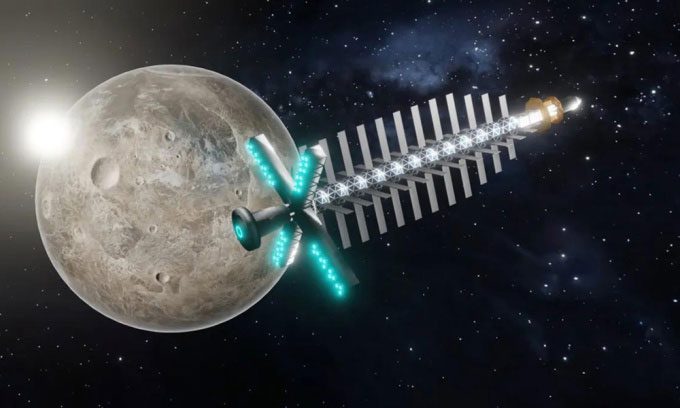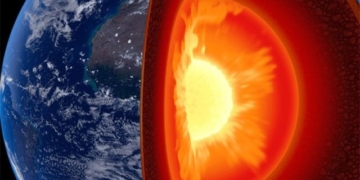The nuclear propulsion system has many advantages over current technologies, such as enabling spacecraft to operate more efficiently and at higher speeds.
The European Space Agency (ESA) announced it will fund several scientific studies to test the use of nuclear propulsion systems for future space exploration missions, reported Interesting Engineering on May 4. This funding initiative is part of the Future Launch Vehicles Preparation Program (FLIPP) of ESA.

Illustration of the nuclear propulsion system. (Image: ESA)
Scientists and engineers will have approximately 11 months to develop potential scientific research related to nuclear propulsion systems. The research must also demonstrate the benefits of using these systems compared to traditional propulsion systems for deep space exploration.
In March, ESA approved several projects to demonstrate the feasibility of nuclear rockets, including the RocketRoll project from the Czech company OHB Czechspace.
“The purpose of the research is to explore the potential use of nuclear fuel for exploration and transportation missions in deep space. The study will provide an overview of Europe’s current experience, technology, and capabilities to develop such vehicles, as well as preliminary design concepts for nuclear propulsion engines,” said Jakub Sevecek, Head of Project Management at OHB Czechspace.
Future space logistics missions will require transporting heavy cargo to build infrastructure for human bases on the Moon, or even further to Mars. Therefore, new technologies, such as nuclear-powered propulsion systems, may outperform current technologies.
“Nuclear propulsion systems could be more effective than the most efficient chemical propulsion systems, and they may also surpass electric propulsion systems limited by solar power. This allows future spacecraft to explore places inaccessible to other technologies,” stated Jan Frýbort, an expert at the Czech Technical University.
Currently, propulsion systems on spacecraft primarily use chemical propellant or solar energy. However, these technologies have nearly reached their physical limits and may not be suitable for long-term deep space missions.
Experts believe that the efficiency of nuclear propulsion engines is superior to that of solar-powered or chemical-powered engines. Nuclear-powered spacecraft are also thought to provide higher speeds.




















































